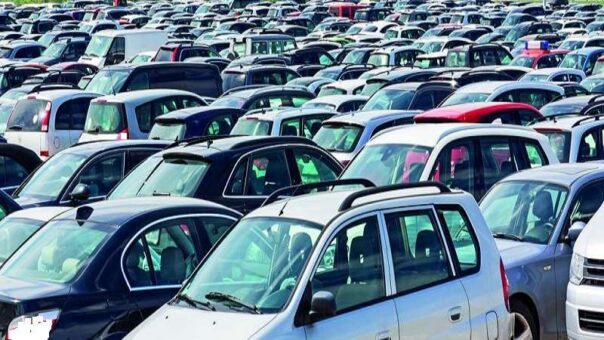Karachi, February 18, 2024 – Pakistan has witnessed a remarkable surge of 230% in the import of Completely Built Unit (CBU) cars during the first seven months (July – January) of the fiscal year 2023-24, according to official data.
This surge comes as a significant development for the automotive sector, but it raises concerns in a country already grappling with a scarcity of dollars.
Official statistics reveal that Pakistan spent $140.28 million on the import of CBU motor cars during the mentioned period, a substantial increase from the $42.50 million spent in the same months of the previous fiscal year. Experts attribute this surge to the relaxation in the opening of letters of credit (LCs) by the State Bank of Pakistan (SBP).
It is noteworthy that in previous years, Pakistan had imposed restrictions on the import of luxury and non-essential items, including vehicles. However, this ban was lifted following an improvement in the availability of US dollars. The easing of LC restrictions appears to have spurred a renewed interest in importing fully assembled vehicles, contributing to the surge in CBU car imports.
On the flip side, the import of motor vehicles in Completely Knocked Down (CKD) condition – meant for assembly purposes – has experienced a decline of 22%. During the first seven months of the current fiscal year, CKD imports reached $422 million, compared to $544.67 million in the same period of the previous fiscal year.
The decline in CKD motor vehicle imports can be attributed to the challenges faced by local car assemblers. Factors such as mounting prices, high-interest rates, and inflationary pressures have created a challenging environment for the domestic automotive industry, leading to a dampened demand for CKD imports.
Local industry experts suggest that the surge in CBU car imports, while reflecting increased consumer demand for fully assembled vehicles, also underscores the need for the government to address the issues faced by local assemblers. A balanced approach is essential to ensure the sustainability and growth of the domestic automotive sector.
As the country grapples with economic challenges, including a shortage of foreign exchange reserves, policymakers will need to strike a delicate balance between promoting economic growth through increased imports and supporting local industries to ensure their competitiveness and viability.
The coming months will be crucial for the Pakistani automotive sector, as stakeholders closely monitor the impact of these trends on the industry’s overall health and the economy at large. The government’s response to these developments is eagerly awaited as it navigates the delicate task of fostering economic growth while safeguarding the interests of domestic industries.
